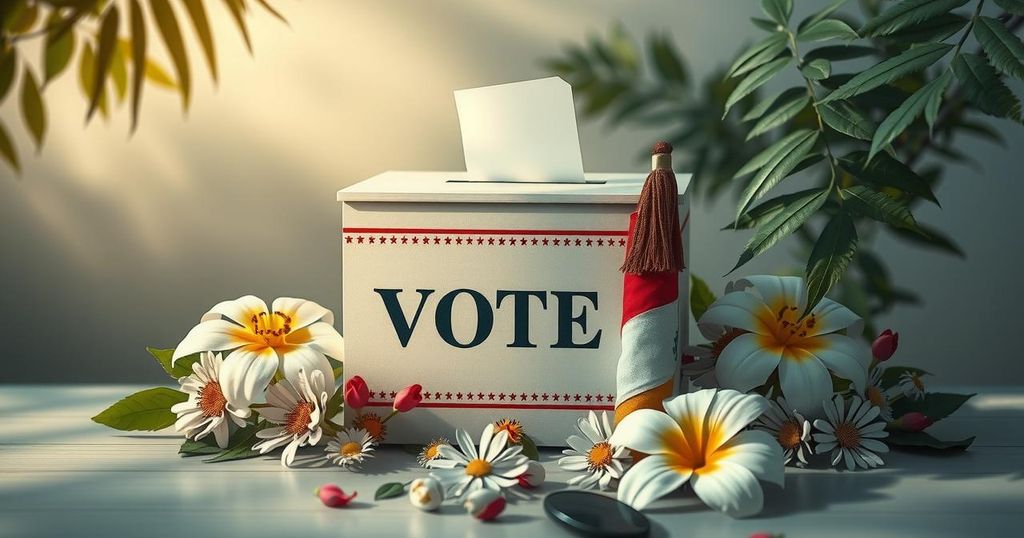Ecuador’s presidential election will enter a runoff as Daniel Noboa and Luisa González received nearly equal votes. Violence and an energy crisis overshadow the election, with Indigenous voters potentially influencing the outcome. Complications persist between left-wing factions regarding resource extraction and unity, as they navigate a divided electorate.
Ecuador is heading to a runoff in its presidential election, as current President Daniel Noboa and left-wing candidate Luisa González received nearly equal vote shares. With 44.6% of the votes counted for Noboa and 44.02% for González, the second round is slated for April. This election comes amidst rising violence in a country where narco-trafficking has flourished, leading to one of the highest homicide rates globally.
The political backdrop reflects a tumultuous recent history, with Noboa overcoming González in a runoff to complete former President Guillermo Lasso’s term. Lasso’s dissolution of Congress to forestall impeachment triggered the snap election after the assassination of candidate Fernando Villavicencio in 2023. Noboa’s strategy to combat organized crime included militarizing urban areas, raising concerns over human rights violations.
Ecuador is also grappling with an energy crisis marked by rolling blackouts due to a significant drought. Amid this instability, the country’s former vice-president, Jorge Glas, was captured following a raid on the Mexican embassy in Quito, intensifying scrutiny of the current administration’s compliance with international law.
The election results were narrower than anticipated, suggesting a challenging runoff. Signs indicate a potential rally around González from the historically divided left, influenced by Indigenous voters, who previously played a vital role in former President Rafael Correa’s rise to power. However, Correa’s administration alienated Indigenous groups through resource extraction policies and repression of dissent.
The leftist party, Revolución Ciudadana (RC), seeks to mend ties with Indigenous movements by negotiating alliances ahead of the 2025 elections. While unsuccessful in forming a joint presidential candidate, both RC and the Indigenous-aligned Pachakutik party agreed not to attack each other, potentially paving the way for mutual support in the runoff.
Despite these efforts, divergent views on resource extraction pose challenges. González supports transitioning to clean energy while recognizing the role of fossil fuels, whereas Pachakutik advocates for a post-extractive economy focused on sustainability and local production. This ideological rift emphasizes the complexities that both parties must navigate to unify their respective bases.
Plurinationalism, introduced in Ecuador’s 2008 constitution to acknowledge Indigenous rights and the rights of nature, remains a point of contention. While Pachakutik has championed this cause in its electoral efforts, it has been largely absent from the broader political rhetoric of other candidates. The outcome of the upcoming election may hinge on the Indigenous movement’s support and the potential collaboration between left-leaning factions.
Ecuador’s forthcoming presidential runoff presents a critical juncture in the nation’s political landscape, with the Indigenous vote potentially determining the victor. The historical divide within the left, alongside differing approaches to resource extraction, underscores the challenges facing González and Noboa. A successful alliance between RC and Pachakutik may be pivotal for the left’s revival amid ongoing violence and socio-economic instability.
Original Source: theconversation.com






